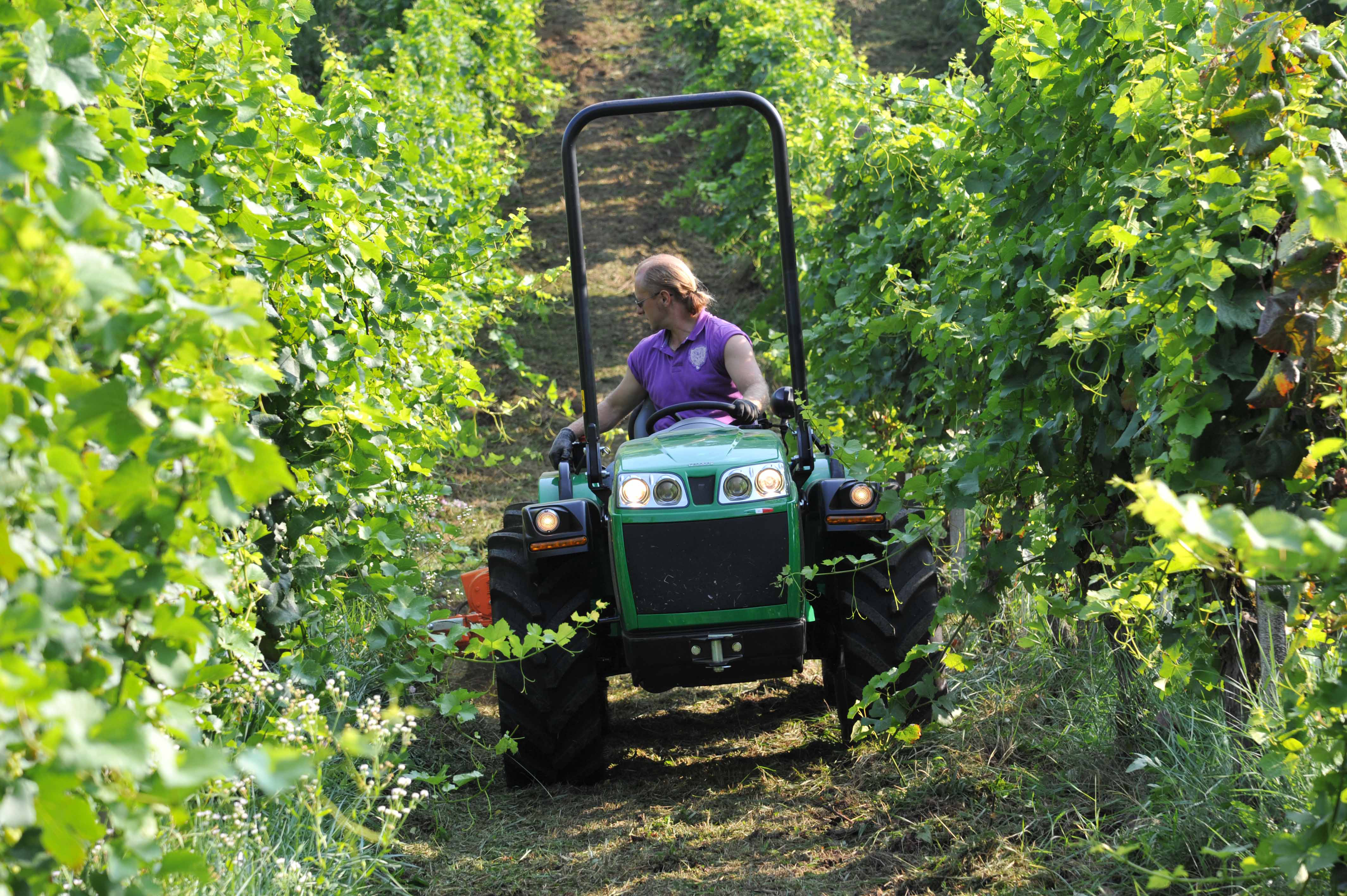On the occasion of EIMA 2016 exhibition, KOHLER Engines has unveiled KDI engine versions specially designed to meet the requirements of the agricultural industry. Among the strong points of this new revolution are: the proven bedplate architecture, whose great strength and high torsional rigidity are particularly effective and suitable for installations on agricultural tractors; the distinctly narrow profile, which allows smaller steering radii and thus easier manoeuvring; the structural crankcase with a center tunnel for the drive shaft; and the two auxiliary lateral Power Take-Offs (PTOs) designed to deliver the highest possible power. Their performance, best-in-class in their category, allows them to replace larger displacement engines, while power delivery and torque curves have been optimised to maximise machine productivity and obtain instant response to loads even at low rev speeds, ensuring pleasant and fluid driving. This success is proven by the great number of OEMs choosing the KDI engines for their applications, many of which has been on display at EIMA 2016. We asked BCS Group to describe their experience with KOHLER Engines, explaining the reasons that led them to choose the KDI engines and the benefits they offered their clients.
An optimal ratio between compactness and performance
BCS Group, the multinational corporation specialising in the design and manufacturing of agricultural and lawn and landscape maintenance machinery, uses the 50 HP KDI 2504M for most of its mid-range tractors, and is currently overseeing the implementation of the same engine in its 75 HP common rail version in its high-range tractors. “As manufacturers of specialised tractors,” points out Roberto Pini, Export Sales Director at BCS, “the key features we look for in engines are an optimal ratio between compactness and performance, high reliability and, above all, low fuel consumption. Another topic of current concern is emissions. We are going through a particularly difficult time for diesel engines, with so many regulations affecting their use. The future will be played out also, and mainly, on that front. Last, but not least, factor is the availability of global service. Our machines now have a considerable impact on profitability, and consequently prompt assistance in case of a breakdown and fast worldwide spare parts availability represent the winning cards.” Why did you choose KDI engines? “As I’ve already mentioned, our machines are extremely compact in size; in light of this our marketing department, followed by our R&D department, rated the various solutions available in the market before choosing KDI, which was judged to be the most innovative high-performance engine series, in addition to having the characteristics best suited to our tractors.” What benefits have you gained by using this KDI engine? “We increased sales of tractors in the power range where we had introduced the KDI engines, but beyond that, our choice allowed us, in a sense, to inject new life in the “100% Made in Italy” concept which at this moment in history is very attractive in international markets.” What is it that satisfies you the most in your relationship with KOHLER? “The special relationship between two companies that played a part in the history of agricultural mechanisation cannot be measured merely by certain specific aspects, as it was created and has been growing spontaneously and is based mainly on personal relationships and mutual trust. In the 50s BCS and Lombardini were already collaborating successfully. More than half a century of profitable business ties are an excellent starting point for facing together the challenges of tomorrow”.
Why did BCS Group choose KDI?
The biggest challenge facing KOHLER Engines these days is to meet the increasingly more complex geography of emissions. It is accomplished using a streamlined and modular after-treatment system (DOC, DOC + SCR and fitted for DPF system integration in preparation for 2020 when Stage V emission standards will come into force). The various models (KDI 1903, KDI 2504 and KDI 3404) with their different settings come with all the certifications required for their range (up to 100 kW) by the European Union (EU: Stage IIIA, Stage IIIB, Stage IV), by North America (EPA: Tier 4i, Tier 4 Final) and by other countries outside the EU (China and Korea: (Tier III or equivalent). In addition, the KOHLER Engines solution provides special dual stage fuel filtration systems, which also allows the use of low quality diesel fuel without risking engine operation. Conversion kits allow the remapping of the ECU by de-tiering the engine in machines that are to be sold in countries where there are no limits on exhaust emissions. It is precisely this application and configuration flexibility that makes KDI the leading manufacturer of 37 to 100 kW engines. Being a common base platform, which by following simple steps can be adapted to locally required emissions standards, is a great benefit to all builders, who can design a single machine model intended for different markets with different required emission levels.




